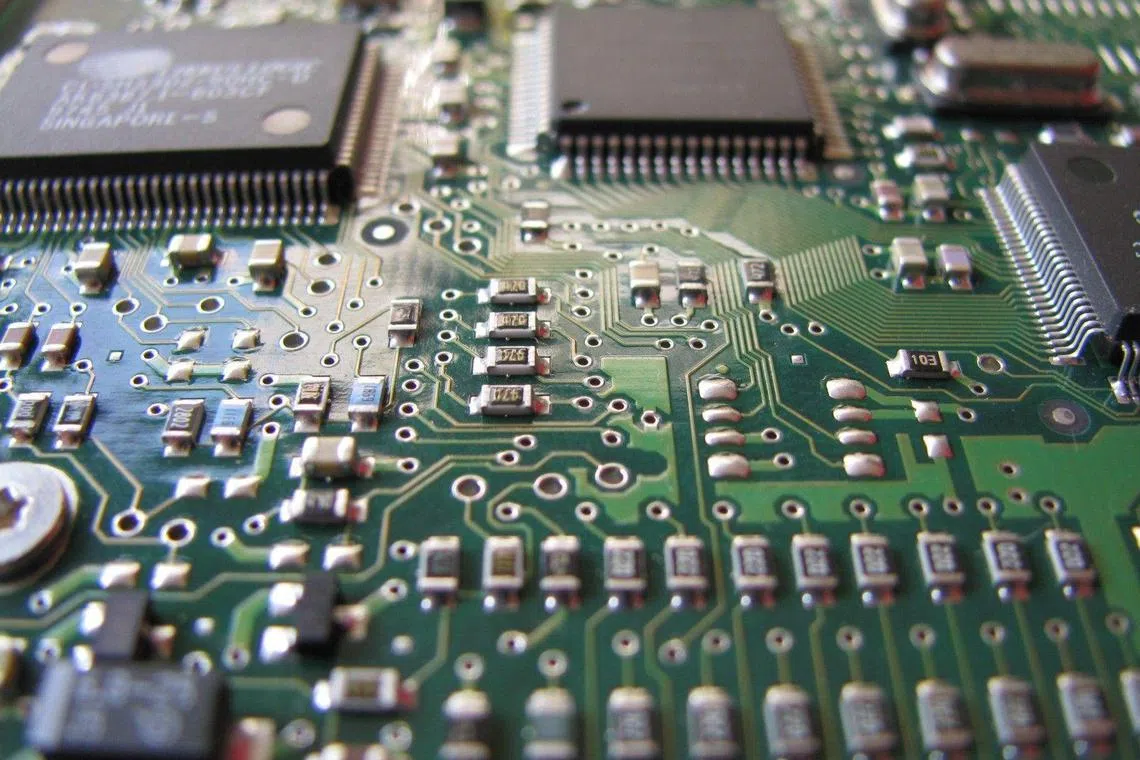Japan backs major firms in next-gen chip project amid global semiconductor shortage
Sign up now: Get ST's newsletters delivered to your inbox

The pandemic has fuelled a global shortage of memory chips.
PHOTO: PIXABAY
Follow topic:
TOKYO – Japan said on Friday it will invest an initial 70 billion yen (S$690 million) in a new semiconductor venture led by tech firms including Sony Group Corp and NEC Corp as it re-asserts itself as a leading maker of advanced chips.
“Semiconductors are going to be a critical component for the development of new leading-edge technologies such as AI, digital industries and in healthcare,” Economy, Trade and Industry Minister Yasutoshi Nishimura said at a news briefing.
The new chip company will be named Rapidus and aims to begin making chips in the second half of the decade, he said.
It will develop and mass produce next-generation semiconductors by 2027, according to major media outlets including national broadcaster NHK and the Mainichi Shimbun.
Other corporate investors in Rapidus include Nippon Telegraph and Telephone Corp, memory chip maker Kioxia Holdings, Softbank Corp, Denso, Toyota Motor Corp and Mitsubishi UFJ Financial Group.
The pandemic has fuelled a global shortage of memory chips, with governments scrambling to secure supplies as carmakers and tech companies have been forced to make production cuts.
Each company has invested around one billion yen, with MUFG Bank investing 300 million yen, according to the Industry Ministry.
The ministry will grant 70 billion yen to Rapidus to lead a research and development project for next-generation semiconductors, said Chief Cabinet Secretary Hirokazu Matsuno without elaborating.
“Semiconductors are a key technology that supports digitalisation and decarbonisation,” he said at a regular briefing.
“We hope these steps will help improve the competitiveness of our country’s semiconductor industry.”
The chip shortage has prompted calls for the government and businesses to secure semiconductor supplies for Japan’s economic security, as geopolitics becomes increasingly volatile – especially concerning Taiwan, which has a huge chip-producing capacity.
The United States recently introduced new measures to limit China’s access to high-end semiconductors with military uses,
Germany’s Economy Ministry has also recommended that the sale of a chip factory to a Chinese-owned firm be blocked
In 2021, Taiwanese chip giant TSMC and Sony said they would tie up on a new US$7 billion (S$9.6 billion) plant in Japan. AFP

